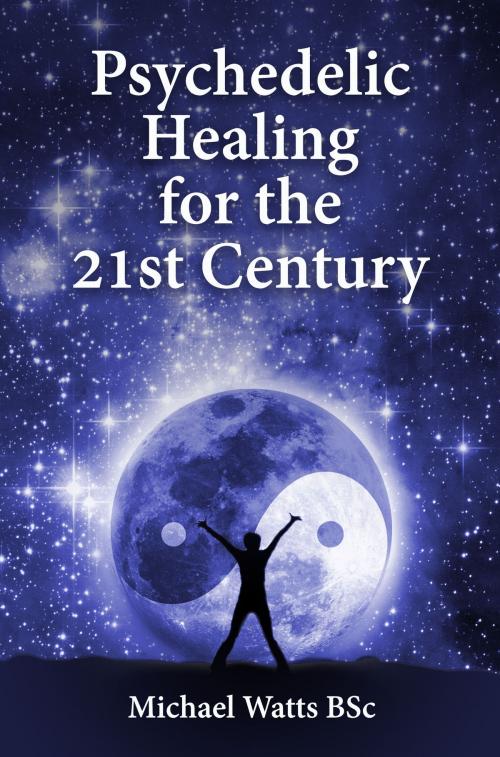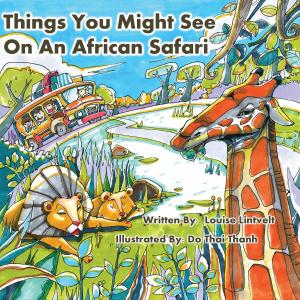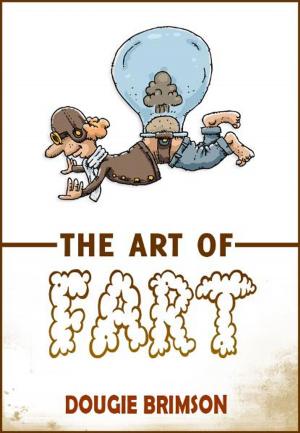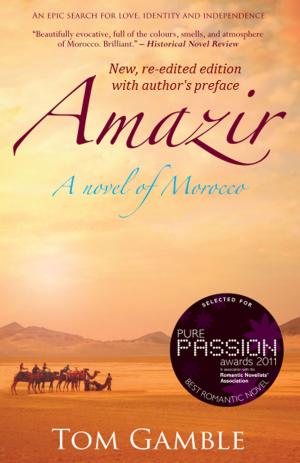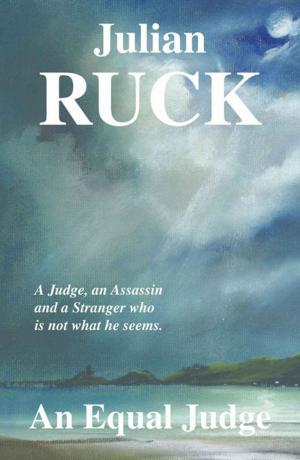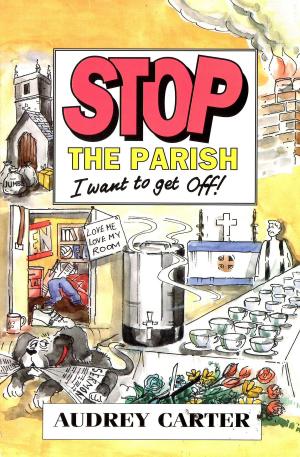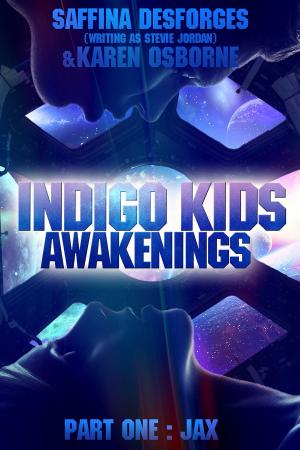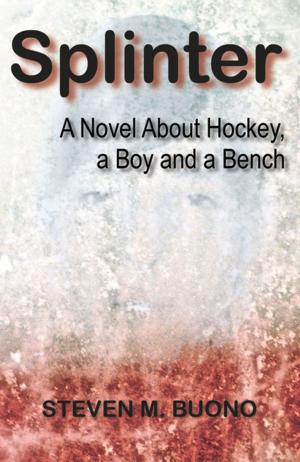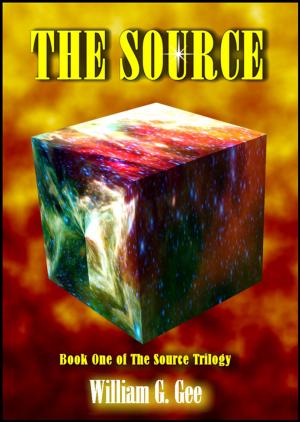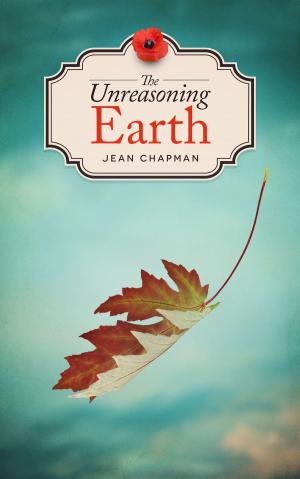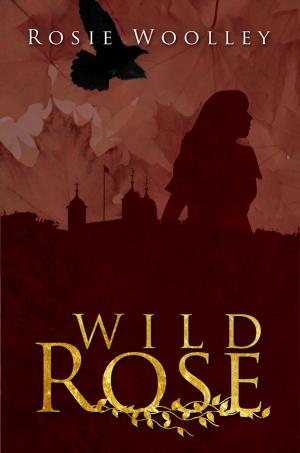Psychedelic Healing for the 21st Century
-
Nonfiction, Religion & Spirituality, Philosophy, Mind & Body, Health & Well Being, Psychology| Author: | ISBN: | 9781912022052 | |
| Publisher: | ebookpartnership.com | Publication: | February 17, 2017 |
| Imprint: | ebookpartnership.com | Language: | English |
| Author: | |
| ISBN: | 9781912022052 |
| Publisher: | ebookpartnership.com |
| Publication: | February 17, 2017 |
| Imprint: | ebookpartnership.com |
| Language: | English |
This short book is packed with fascinating information about one of the most controversial areas of psychiatry - psychedelic therapy. Research within this field of medicine has recently been resumed, having been banned for nearly half a century, and results of completed studies on the effects of psychedelics on war veterans with intractable PTSD and on subjects with treatment-resistant depression, have been very promising.
Currently, controlled studies on the efficacy of psychedelic treatment for depression are taking place at Johns Hopkins University School of Medicine in the USA and at the Neuropsychopharmacology Unit in the Division of Brain Sciences, at Imperial College London. The results so far suggest that within a decade, psychedelics could become a legal pharmacological treatment for depression and PTSD.
In addition, these substances are known for their ability to dramatically enhance creativity and to provide profound spiritual insights, but perhaps the most fascinating part of this book is the second section which describes the experiences of numerous famous individuals who owe much of their significant success in life to these life-changing chemicals, the list includes:
Apple pioneer, Steve Jobs who credits his outside-the-box perspective to LSD, which bestowed upon him an entirely different vision of existence that inspired a lot of Apple's product inventions and success; Francis Crick, the father of modern genetics who perceived the double helix shape of DNA during an LSD trip. The award-winning cosmologist Carl Sagan who stated: 'the Hindu mystical experience' of union with the universe ' is pre-wired into us, requiring only 200 micrograms of LSD to be made manifest.' Oliver Wolf Sacks, author and Professor of neurology and psychiatry at Columbia University: 'I'm glad I had the experience. It taught me what the mind is capable of.' Susan Blackmore, English freelance writer, lecturer, author of The Meme Machine who stated: 'The ultimate psychedelic, whose discoverer is fit and well at a hundred years old, is LSD...Not only can it induce mystical experiences, but can treat neurosis and alleviate pain and fear in the terminally ill. We may be wasting a potential 'wonder drug.' Tom Robbins, American author named one of the 100 Best Writers of the 20th Century by Writer's Digest magazine: 'Frankly, the day I ingested 300 micrograms of pure Sandoz LSD was the most rewarding day of my life, the one day that I would not trade for any other... psychedelics can enhance the life of any intelligent, courageous person, and they might even represent our last great hope for planetary survival.'
And this list also includes numerous other celebrity figures such as: Aldous Huxley; Chemistry Nobel Prize winner, Kary Banks Mullis; VRML inventor Mark Pesce; New York Times best-selling author and doctor, Andrew Weil; Bill Wilson, founder of Alcoholics Anonymous; Rupert Sheldrake; Colin Wilson; Walter Houston Clark; Stephen John Fry; Robert Greene; Robin Skynner; Abraham Maslow; Robert Anton Wilson; Huston Smith; Alan Watts; Ken Kesey; Cary Grant; and Time Magazine publisher Henry Luce, who in the 1950's, subsequently wrote and published in Time Magazine, some very positive articles about the drug's potential, in which he praised Sandoz and LSD itself as providing: 'an invaluable weapon to psychiatrists.'
Currently, controlled studies on the efficacy of psychedelic treatment for depression are taking place at Johns Hopkins University School of Medicine in the USA and at the Neuropsychopharmacology Unit in the Division of Brain Sciences, at Imperial College London. The results so far suggest that within a decade, psychedelics could become a legal pharmacological treatment for depression and PTSD.
In addition, these substances are known for their ability to dramatically enhance creativity and to provide profound spiritual insights, but perhaps the most fascinating part of this book is the second section which describes the experiences of numerous famous individuals who owe much of their significant success in life to these life-changing chemicals, the list includes:
Apple pioneer, Steve Jobs who credits his outside-the-box perspective to LSD, which bestowed upon him an entirely different vision of existence that inspired a lot of Apple's product inventions and success; Francis Crick, the father of modern genetics who perceived the double helix shape of DNA during an LSD trip. The award-winning cosmologist Carl Sagan who stated: 'the Hindu mystical experience' of union with the universe ' is pre-wired into us, requiring only 200 micrograms of LSD to be made manifest.' Oliver Wolf Sacks, author and Professor of neurology and psychiatry at Columbia University: 'I'm glad I had the experience. It taught me what the mind is capable of.' Susan Blackmore, English freelance writer, lecturer, author of The Meme Machine who stated: 'The ultimate psychedelic, whose discoverer is fit and well at a hundred years old, is LSD...Not only can it induce mystical experiences, but can treat neurosis and alleviate pain and fear in the terminally ill. We may be wasting a potential 'wonder drug.' Tom Robbins, American author named one of the 100 Best Writers of the 20th Century by Writer's Digest magazine: 'Frankly, the day I ingested 300 micrograms of pure Sandoz LSD was the most rewarding day of my life, the one day that I would not trade for any other... psychedelics can enhance the life of any intelligent, courageous person, and they might even represent our last great hope for planetary survival.'
And this list also includes numerous other celebrity figures such as: Aldous Huxley; Chemistry Nobel Prize winner, Kary Banks Mullis; VRML inventor Mark Pesce; New York Times best-selling author and doctor, Andrew Weil; Bill Wilson, founder of Alcoholics Anonymous; Rupert Sheldrake; Colin Wilson; Walter Houston Clark; Stephen John Fry; Robert Greene; Robin Skynner; Abraham Maslow; Robert Anton Wilson; Huston Smith; Alan Watts; Ken Kesey; Cary Grant; and Time Magazine publisher Henry Luce, who in the 1950's, subsequently wrote and published in Time Magazine, some very positive articles about the drug's potential, in which he praised Sandoz and LSD itself as providing: 'an invaluable weapon to psychiatrists.'
This short book is packed with fascinating information about one of the most controversial areas of psychiatry - psychedelic therapy. Research within this field of medicine has recently been resumed, having been banned for nearly half a century, and results of completed studies on the effects of psychedelics on war veterans with intractable PTSD and on subjects with treatment-resistant depression, have been very promising.
Currently, controlled studies on the efficacy of psychedelic treatment for depression are taking place at Johns Hopkins University School of Medicine in the USA and at the Neuropsychopharmacology Unit in the Division of Brain Sciences, at Imperial College London. The results so far suggest that within a decade, psychedelics could become a legal pharmacological treatment for depression and PTSD.
In addition, these substances are known for their ability to dramatically enhance creativity and to provide profound spiritual insights, but perhaps the most fascinating part of this book is the second section which describes the experiences of numerous famous individuals who owe much of their significant success in life to these life-changing chemicals, the list includes:
Apple pioneer, Steve Jobs who credits his outside-the-box perspective to LSD, which bestowed upon him an entirely different vision of existence that inspired a lot of Apple's product inventions and success; Francis Crick, the father of modern genetics who perceived the double helix shape of DNA during an LSD trip. The award-winning cosmologist Carl Sagan who stated: 'the Hindu mystical experience' of union with the universe ' is pre-wired into us, requiring only 200 micrograms of LSD to be made manifest.' Oliver Wolf Sacks, author and Professor of neurology and psychiatry at Columbia University: 'I'm glad I had the experience. It taught me what the mind is capable of.' Susan Blackmore, English freelance writer, lecturer, author of The Meme Machine who stated: 'The ultimate psychedelic, whose discoverer is fit and well at a hundred years old, is LSD...Not only can it induce mystical experiences, but can treat neurosis and alleviate pain and fear in the terminally ill. We may be wasting a potential 'wonder drug.' Tom Robbins, American author named one of the 100 Best Writers of the 20th Century by Writer's Digest magazine: 'Frankly, the day I ingested 300 micrograms of pure Sandoz LSD was the most rewarding day of my life, the one day that I would not trade for any other... psychedelics can enhance the life of any intelligent, courageous person, and they might even represent our last great hope for planetary survival.'
And this list also includes numerous other celebrity figures such as: Aldous Huxley; Chemistry Nobel Prize winner, Kary Banks Mullis; VRML inventor Mark Pesce; New York Times best-selling author and doctor, Andrew Weil; Bill Wilson, founder of Alcoholics Anonymous; Rupert Sheldrake; Colin Wilson; Walter Houston Clark; Stephen John Fry; Robert Greene; Robin Skynner; Abraham Maslow; Robert Anton Wilson; Huston Smith; Alan Watts; Ken Kesey; Cary Grant; and Time Magazine publisher Henry Luce, who in the 1950's, subsequently wrote and published in Time Magazine, some very positive articles about the drug's potential, in which he praised Sandoz and LSD itself as providing: 'an invaluable weapon to psychiatrists.'
Currently, controlled studies on the efficacy of psychedelic treatment for depression are taking place at Johns Hopkins University School of Medicine in the USA and at the Neuropsychopharmacology Unit in the Division of Brain Sciences, at Imperial College London. The results so far suggest that within a decade, psychedelics could become a legal pharmacological treatment for depression and PTSD.
In addition, these substances are known for their ability to dramatically enhance creativity and to provide profound spiritual insights, but perhaps the most fascinating part of this book is the second section which describes the experiences of numerous famous individuals who owe much of their significant success in life to these life-changing chemicals, the list includes:
Apple pioneer, Steve Jobs who credits his outside-the-box perspective to LSD, which bestowed upon him an entirely different vision of existence that inspired a lot of Apple's product inventions and success; Francis Crick, the father of modern genetics who perceived the double helix shape of DNA during an LSD trip. The award-winning cosmologist Carl Sagan who stated: 'the Hindu mystical experience' of union with the universe ' is pre-wired into us, requiring only 200 micrograms of LSD to be made manifest.' Oliver Wolf Sacks, author and Professor of neurology and psychiatry at Columbia University: 'I'm glad I had the experience. It taught me what the mind is capable of.' Susan Blackmore, English freelance writer, lecturer, author of The Meme Machine who stated: 'The ultimate psychedelic, whose discoverer is fit and well at a hundred years old, is LSD...Not only can it induce mystical experiences, but can treat neurosis and alleviate pain and fear in the terminally ill. We may be wasting a potential 'wonder drug.' Tom Robbins, American author named one of the 100 Best Writers of the 20th Century by Writer's Digest magazine: 'Frankly, the day I ingested 300 micrograms of pure Sandoz LSD was the most rewarding day of my life, the one day that I would not trade for any other... psychedelics can enhance the life of any intelligent, courageous person, and they might even represent our last great hope for planetary survival.'
And this list also includes numerous other celebrity figures such as: Aldous Huxley; Chemistry Nobel Prize winner, Kary Banks Mullis; VRML inventor Mark Pesce; New York Times best-selling author and doctor, Andrew Weil; Bill Wilson, founder of Alcoholics Anonymous; Rupert Sheldrake; Colin Wilson; Walter Houston Clark; Stephen John Fry; Robert Greene; Robin Skynner; Abraham Maslow; Robert Anton Wilson; Huston Smith; Alan Watts; Ken Kesey; Cary Grant; and Time Magazine publisher Henry Luce, who in the 1950's, subsequently wrote and published in Time Magazine, some very positive articles about the drug's potential, in which he praised Sandoz and LSD itself as providing: 'an invaluable weapon to psychiatrists.'
